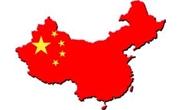Market Data

March 16, 2014
Wave of Defaults Expected in China
Written by Sandy Williams
Haixen Steel, a mill in Shanxi province of China, suspended operations on five blast furnaces after defaulting on a bank loans due on March 7.
Haixen is not a top tier Chinese steel mill nor is the default and shutdown a surprise to most. It is a mill heavy in debt and on the Chinese hit list for environmental violations. But the default sent a strong signal to other corporations and the Chinese steel industry that the government is serious about financial deregulation. Failed or reckless investments will no longer be bailed out by banks or the government.
Chinese Premier Li Kequiang speaking after the annual session of the national people’s congress said, “We are going to confront serious challenges this year and some challenges may be even more complex.” He told lenders to China’s private sector factories they should expect debt defaults. The warning came after Shanghai Chaori Solar Energy failed to make payment on a bond last week, the first ever China corporate bond default.
Premier Li hopes to establish a free market in China based on demand that is strong enough to weather the risks of failure and default. Speaking after the annual session of the national people’s congress, Li Keqiang said: “We are going to confront serious challenges this year and some challenges may be even more complex.” He told lenders to China’s private sector factories they should expect debt defaults.
Li said China must “ensure steady growth, ensure employment, avert inflation and defuse risks” while also fighting pollution, among other tasks.
The Chinese economy’s rate of growth is the slowest in five years and dropping quicker than most analysts expected. GDP grew 7.7 percent in both 2012 and 2013, the slowest since 1999 and the target number for 2014 is 7.5 percent.
Beijing is trying to counter the slow down with an increase in infrastructure spending. According to the National Bureau of statistics, so far in the first two months of 2014 government spending on infrastructure rose 17.9 percent.
Economists agree that Li is working toward a positive change in the Chinese market but some worry that the wave of defaults to come may cause a chain reaction. Chang Mian, chief economist at Barclays in a commentary by Forbes, says “selective defaults,” are more likely with defaults occurring in energy, shipbuilding, steel, cement and property.
The defaults are causing panic in the metals markets as well. The first default by Chaori Solar Energy was quickly followed by drop in copper prices in the Shanghai Futures Exchange and in London. Copper is favored as collateral in trade Chinese trade and financial markets and defaults on loans could trigger a sell off into the market.
The Shanxi announcement prompted a sell off in the ferrous markets that drove down iron ore prices by 11 percent in four days. Rebar contracts also took a hit, falling $19 per tonne on March 10. The Dow Jones industrial average fell 231.19 points on Thursday in partly due to the developing situation in the Ukraine but also over concerns about the Chinese economy.
It remains to be seen whether the Beijing’s move to reform the investment and financial community will be too much for the already weak economy to handle.







